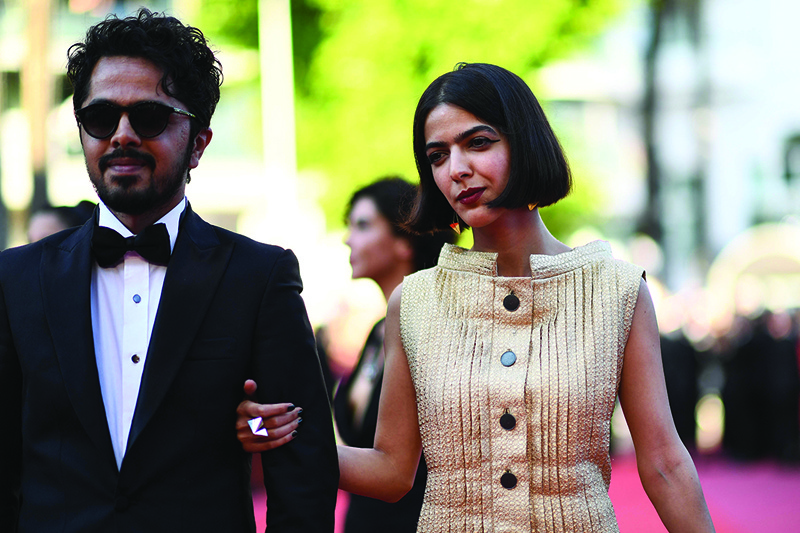 In this file photo Iranian actress and daughter of Jafar Panahi Solmaz Panahi (right) and Iranian actor and son of Jafar Panahi Panah Panahi arrive for the closing ceremony and the screening of the film "The Man Who Killed Don Quixote" at the 71st edition of the Cannes Film Festival in Cannes, southern France. — AFP
In this file photo Iranian actress and daughter of Jafar Panahi Solmaz Panahi (right) and Iranian actor and son of Jafar Panahi Panah Panahi arrive for the closing ceremony and the screening of the film "The Man Who Killed Don Quixote" at the 71st edition of the Cannes Film Festival in Cannes, southern France. — AFP
You might think the family business did not seem so inviting to young Iranian filmmaker Panah Panahi, given that his acclaimed father has faced years of persecution at the hands of the authorities. But the 37-year-old made a splash at the Cannes film festival this weekend, presenting his first film "Hit the Road" at an event that his father, Jafar Panahi, has been blocked from attending by Tehran for more than a decade. The elder Panahi has won a slew of awards at international festivals, including the top prize in Berlin for "Taxi" in 2015 and best screenplay at Cannes for his last film "Three Faces" in 2018.
But since being convicted of "propaganda against the system" in 2010, following his support for anti-government protests and a string of films that critiqued modern Iran, he has been barred from leaving the country to pick up any of these awards. None of this is what most concerned his son, however, as he toyed with becoming a director himself. "These things were a minor issue for me," he told AFP on the beach at Cannes.
"My main problem throughout my life was how I could have a separate identity from my father. "I was instinctively drawn to cinema with a passion... but this comparison was always there," he said. Eventually he "decided to only think of myself and what I want to achieve, and not occupy myself with the problems of my father or these comparisons. Otherwise, I'd never have been able to make films."
'A real issue'
The comparisons are hard to avoid, however. "Hit the Road" is playing in the Director's Fortnight at Cannes-the same section in which his father presented his classic "The White Balloon" in 1995, taking home Cannes' Prix de la Camera d'Or for best first film. The younger Panahi's effort is also a low-key triumph, a touching and amusing look at a family driving their son from Tehran to the border so he can leave the country. "I have close friends who have left Iran, so this is a real issue for me. All of my friends have reached a point of finding the situation intolerable," Panahi told AFP.
"I went with this idea that the boy had reached a total dead-end. This dead-end was a real one that I had witnessed for myself and those around me." But Panahi said he didn't want the specific situation in Iran to be his focus, and indeed the film is more about the bittersweet interactions between the family, including a hilariously high-spirited younger brother. "I wanted to avoid being too specific, so that if people from other countries watch the film, and their son or brother is dealing with similar problems, they can connect with him," the director said. - AFP
.jpg)
